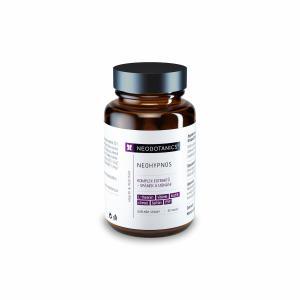
Discover the Secrets of Pepsin and Its Importance for Health

What is pepsin and why is it so important for our digestion?
In the human body, there is a silent yet immensely powerful helper without which we couldn't imagine regular digestion. It's called pepsin, and it's one of the most important enzymes in the human stomach. Although it isn't often discussed in everyday conversation, it's the enzyme pepsin that plays a crucial role in breaking down proteins in food. Without it, we wouldn't be able to extract essential amino acids from meat, eggs, or legumes, which we need for growth, healing, and hormone production.
How does pepsin work in the human body?
Pepsin is an enzyme that activates in the acidic environment of the stomach. The body produces it in the form of an inactive precursor called pepsinogen, which converts into active pepsin in the presence of hydrochloric acid (HCl). This process is very sophisticated and serves to protect the stomach lining—if pepsin were activated earlier, it could damage the cells that produce it.
Once activated, it begins its work: breaking down long protein chains into shorter fragments—peptides. In other words, it answers the question "what does pepsin break down?"—specifically, proteins. Without this breakdown, the human body couldn't absorb amino acids, which are the basic building blocks of life.
Interestingly, pepsin can only function in an acidic environment—its optimal pH ranges around 1.5 to 2. Once the stomach contents move into the small intestine, where the environment is alkaline, pepsin's activity quickly decreases, and its role is taken over by other enzymes, such as trypsin or chymotrypsin.
Pepsin and its place among digestive enzymes
Within the digestive system, there are numerous enzymes, each responsible for different food components—carbohydrates, fats, or proteins. Pepsin belongs to proteolytic enzymes, meaning those that break down proteins. However, it is one of the few that acts already in the stomach. Most enzymes activate only in the small intestine, where nutrient absorption also occurs.
Many people don't realize that without the proper function of the enzyme pepsin, a whole range of issues could arise—not only poor digestion and bloating but also a lack of key nutrients. A deficiency in amino acids can lead to fatigue, weakened immunity, slower wound healing, or even hormonal imbalances.
One reason pepsin may be less active is low stomach acid levels. This is common in older adults, during chronic stress, or with long-term use of medications that reduce stomach acidity.
What happens when pepsin doesn't function properly?
If the body doesn't produce enough pepsin, or if there isn't enough acid in the stomach to activate it, protein digestion can suffer. In practice, this can mean feeling heavy after meals, bloating, belching, or even inflammatory conditions in the intestines caused by undigested food remnants. Sometimes people confuse this problem with intolerance to certain foods—when it might just be a lack of a properly functioning digestive enzyme.
An interesting case from practice is presented by integrative medicine doctor Dr. Amy Myers, who in her book describes a patient with chronic fatigue, digestive issues, and skin problems. Only when she focused on restoring digestion—including supporting acid production and supplementing the enzyme pepsin—did all symptoms improve. The body started effectively absorbing nutrients that previously just passed through the digestive tract without benefit.
Natural support for pepsin and healthy digestion
Fortunately, there are several natural ways to support pepsin activity and thus improve protein digestion. The first step is supporting stomach acid production—for example, by consuming fermented foods like sauerkraut, apple cider vinegar, or kefir. Some people also turn to dietary supplements containing betaine HCl and pepsin, which aid digestion, especially when stomach acid production is low.
Our grandmothers already knew that starting a meal with a small amount of bitter herbs—like wormwood or chicory—helps stimulate stomach juices. Bitter substances stimulate both acid production and digestive enzyme secretion. Another option is thorough chewing of food, which sends signals to the digestive tract to prepare for food intake.
It is important to mention that long-term use of medications to reduce stomach acidity, such as proton pump inhibitors, can disrupt pepsin activity and thus affect overall digestion. If someone regularly uses these medications, they should consult their doctor about their long-term effects.
The impact of lifestyle on the enzyme pepsin
Digestive enzymes are not just the result of biological processes—they are deeply influenced by our lifestyle. Chronic stress, lack of sleep, improper diet, or eating quickly "on the go" can reduce the efficiency of the entire digestive process. So while pepsin may be present, it might not function optimally.
Try our natural products
"The digestive system is like an orchestra that must play in the right tempo—when the body is stressed, the whole concert falls apart," says nutritionist Dr. Libby Weaver. The key to proper digestion is not just what we eat, but how and when we eat. A slower pace, mindful eating, and quality rest can have a greater impact than it might seem.
What to take away from all this?
Pepsin may be inconspicuous, but its role in the body is crucial. Without it, we wouldn't be able to effectively absorb proteins, which form the foundation of our muscles, enzymes, hormones, and immune cells. If chronic digestive issues arise, pepsin might be one of the factors worth focusing on. Whether through diet, herbs, or professional help, supporting this enzyme can have a positive impact not only on digestion but also on overall vitality.
Ultimately, pepsin is an example of how even a small component of a biological system can have a huge impact on our health. And it's precisely these little things—which we often take for granted—that can be the key to better functioning of both body and mind.



